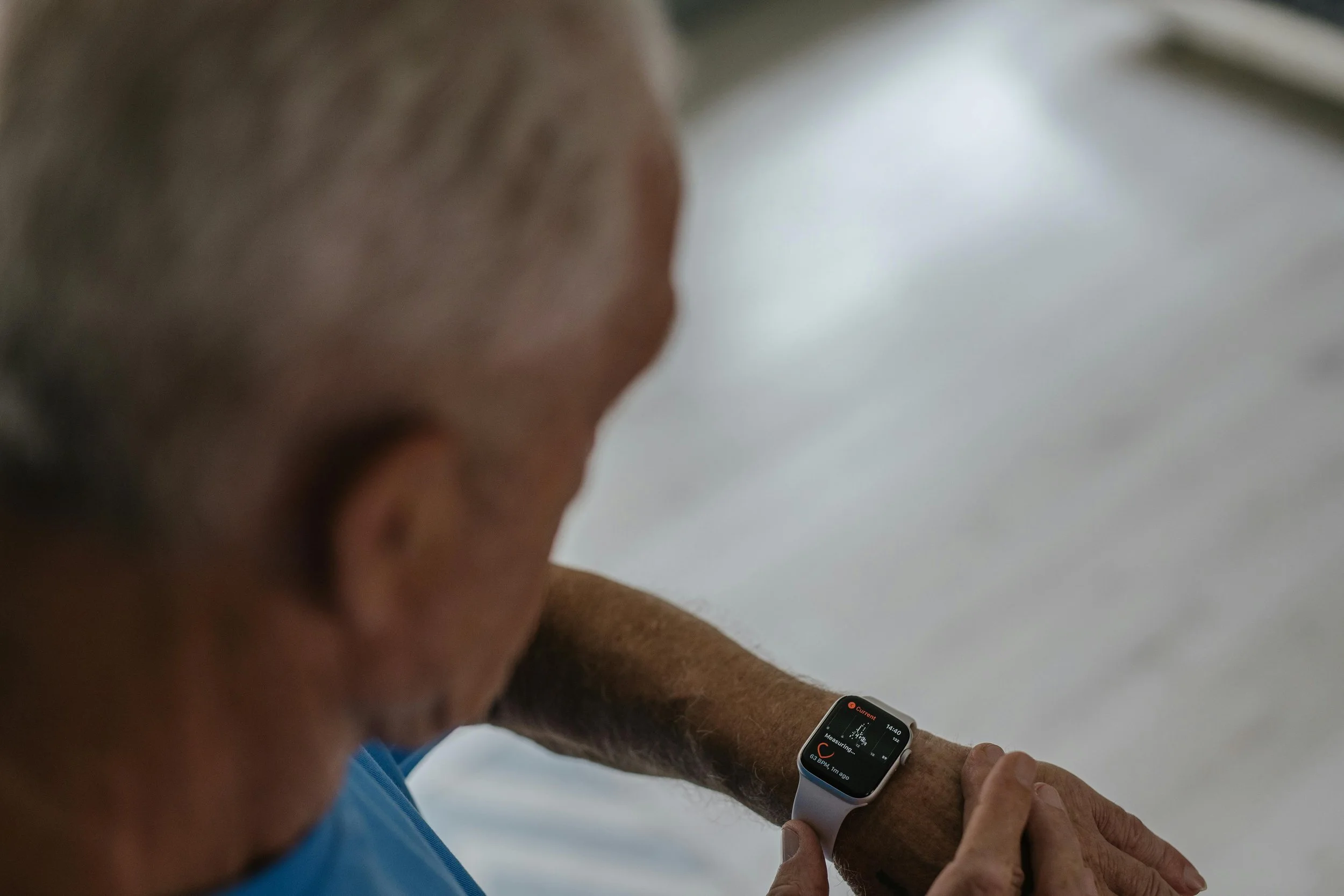The Future of Wellness is Here
Staying on top of your health has never been easier. Smart devices like the Apple Watch let you monitor your heart rate, activity, and more, right from your wrist.
Technology is not just about computers and phones anymore. It can also play a big role in helping us stay healthy, safe, and independent. Today, there are many smart health devices designed to track your well-being and even alert you or your loved ones if something seems wrong. These tools can be especially helpful for older adults who want to continue living life to the fullest while giving family members peace of mind.
Keeping an Eye on Your Health
Many popular health devices are made for monitoring everyday health right from your home. For instance, a smart blood pressure monitor can connect to your smartphone, keeping a clear record of your readings. This kind of information can make doctor visits more productive, as you can easily share a complete history of your health data.
Devices can also help with:
Activity and Sleep: Wearable trackers like the Fitbit monitor your steps, heart rate, and even the quality of your sleep.
Heart Health: Some devices can measure your heart rate and even take an ECG (a test for heart rhythm), sending the information directly to your phone.
Diabetes Management: For those with diabetes, a continuous glucose monitor (like Dexcom) can track blood sugar levels in real time, making management much simpler.
Examples of Senior-Friendly Health Devices
Apple Watch: Tracks walking stability, detects falls, and monitors your heart. It can automatically alert a family member if it senses you've had a fall and are not moving.
Fitbit: A simple wearable that tracks your steps, sleep, and overall activity, helping you stay motivated.
Withings Blood Pressure Monitor: An easy-to-use monitor that automatically syncs your blood pressure readings to an app for you and your doctor to review.
Omron HeartGuide: A watch-style device that takes and records blood pressure readings throughout the day.
Remote Patient Monitoring (RPM): Your doctor may provide you with specific devices (like a smart scale or blood pressure cuff) that send your health data directly to their office, allowing them to monitor you remotely.
Telehealth: Your Doctor's Office at Home
Beyond tracking, technology now allows you to connect directly with your healthcare providers without ever leaving the house. This is called telehealth.
Think of it as a virtual doctor’s appointment. Through a video call on your smartphone, tablet, or computer, you can have a consultation with your doctor, discuss symptoms, get a diagnosis, and even receive prescription refills. Telehealth can make managing chronic conditions much easier, especially if transportation is a challenge. Plus, it can save you time and the stress of a long commute.
When used wisely, smart health devices and services can be wonderful companions. They provide gentle reminders, track your progress, and give reassurance that you are staying safe and healthy. Most importantly, they support your independence, bring peace of mind, and make daily life a little easier and more enjoyable.
Want to take charge of your health from home? Contact us today to get started!
Disclaimer: This article is for general information and is not medical advice. Always talk to your doctor or another healthcare provider before making decisions about your health, starting routines, or relying on health devices.
